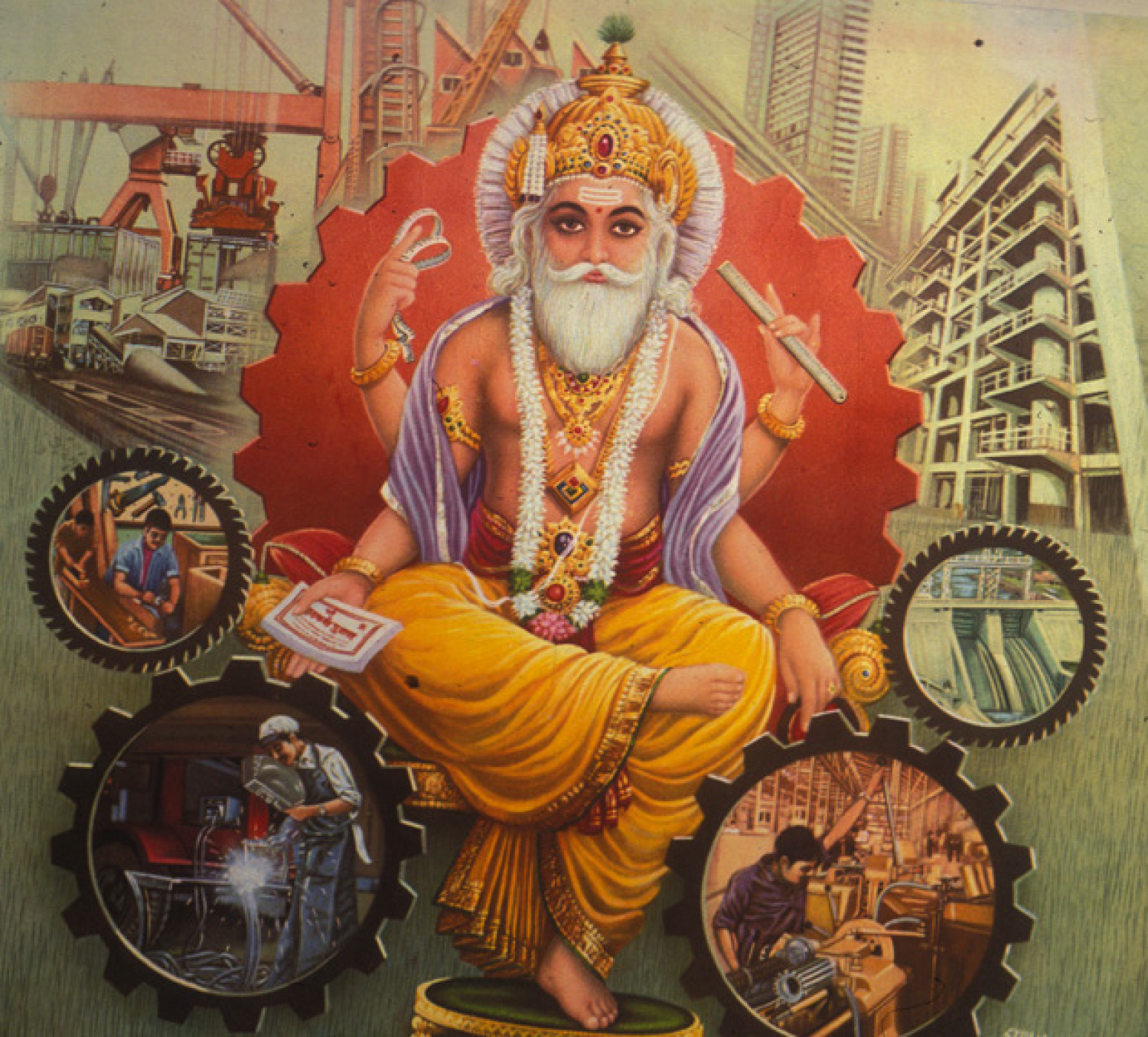Technophany and the Sacralisation of Infrastructure in India and Thailand 2023.03.21

Tuesday, March 21
4pm
Paleo Hall, CU Boulder Museum of Natural History
This will be a public lecture by Professor Kenneth George, (Anthropology) The Australian National University, as part of a two-talk series for this year's Distinguished Lecture in Cultural Anthropology. He and his partner, Professor Kirin Narayan, are co-PIs of a multi-year, multi-sited project on the renewed interest in venerating Vishwakarma in contemporary India. Vishwakarma, the deity associated with craft and artisanal work, has recently become much more visible and linked to national industry, making him the god of India's new infrastructure boom.
The rise of industrial capitalism in South and Southeast Asia since the late 19th century has been accompanied by rites that aim to bring emerging infrastructures, technologies, and objects of manufacture into alignment with the cosmos. Most prominent among these rites are those tied to the worship of the Hindu-Buddhist deity known in India as Vishwakarma, and in Thailand as Witsanukam. This god and his manifestation in ritual do not stand outside of technological practices and assemblage, but occasion a time of “technophany,” a time in which societies of technical ensembles and beings are made visible and wondrous to devotees and their publics. Using the conceptual framework of technophany, and drawing from historical study and team-based ethnographic fieldwork in both India and Thailand (2017-2019, and 2022), this comparative look at Vishwakarma worship calls for a rethinking of frameworks that would treat religion and technology as ontologically distinct domains.
Vishwakarma. Yogendra Rastogi, c. mid-1970s. Photo courtesy of Christopher Pinney
Open to the public.
Sponsored by the Department of Anthropology,
the Center for the Humanities and Arts,
and the Center for Asian Studies.

